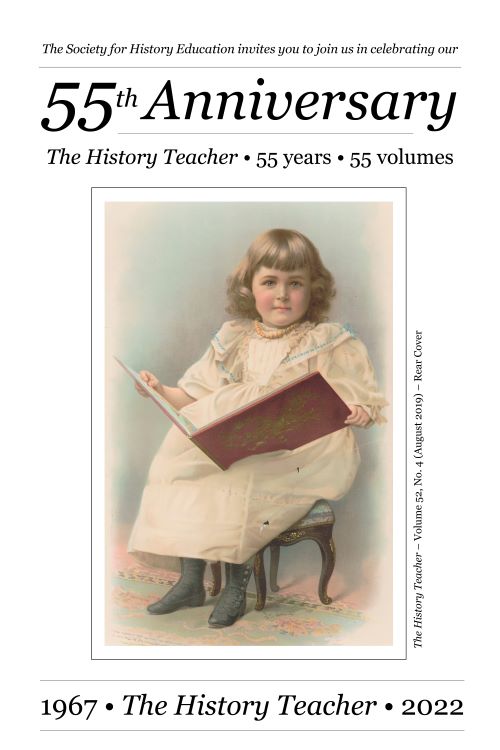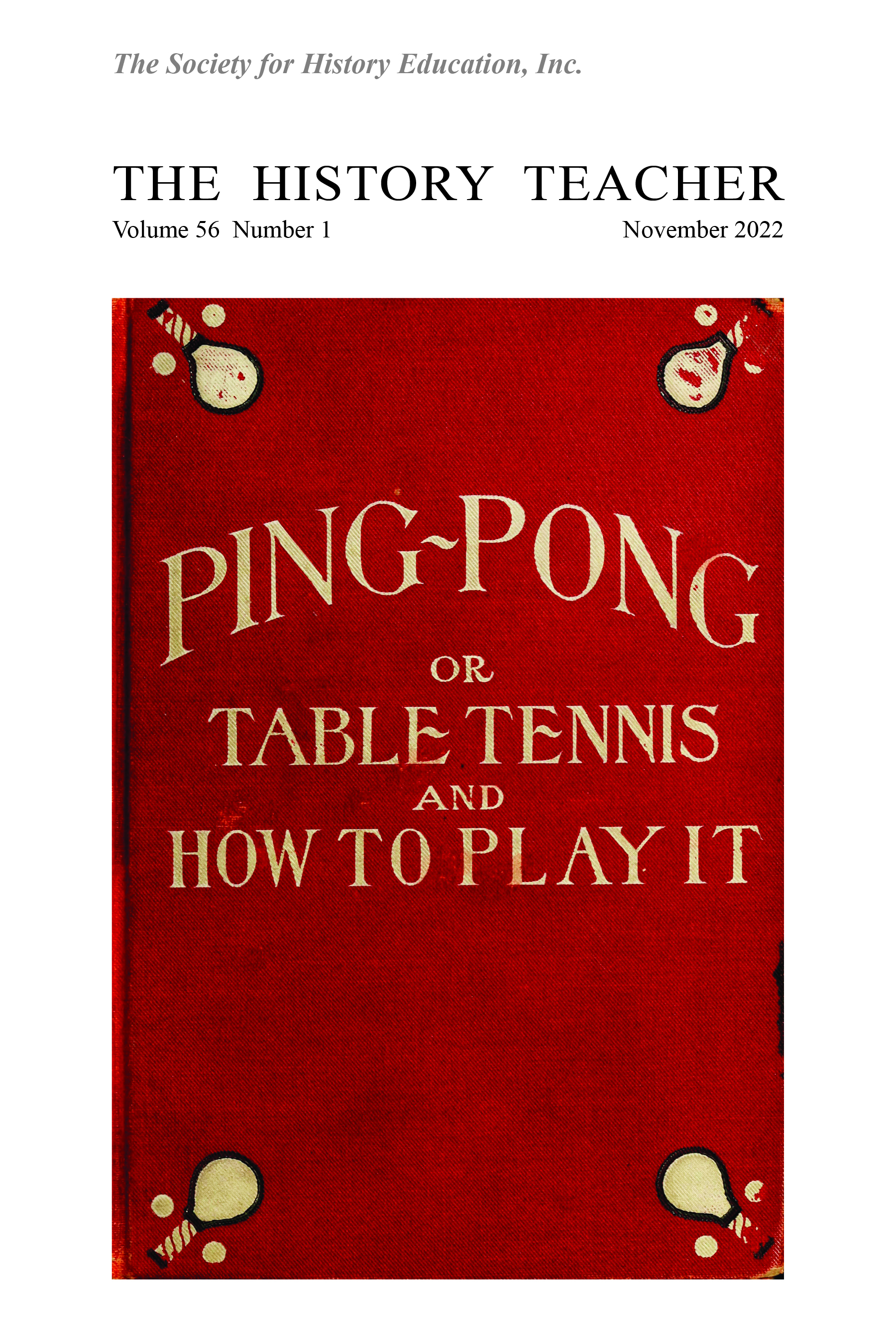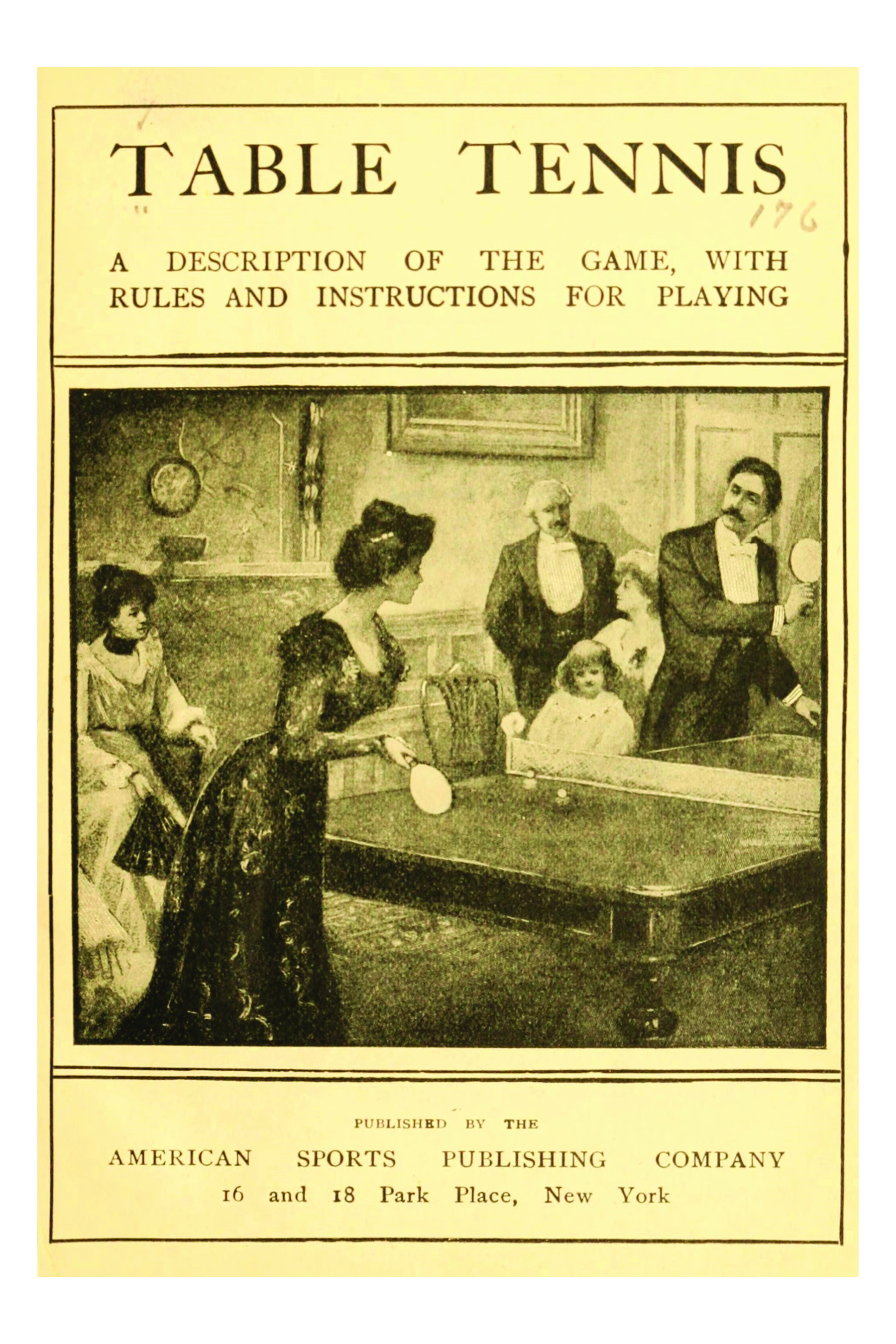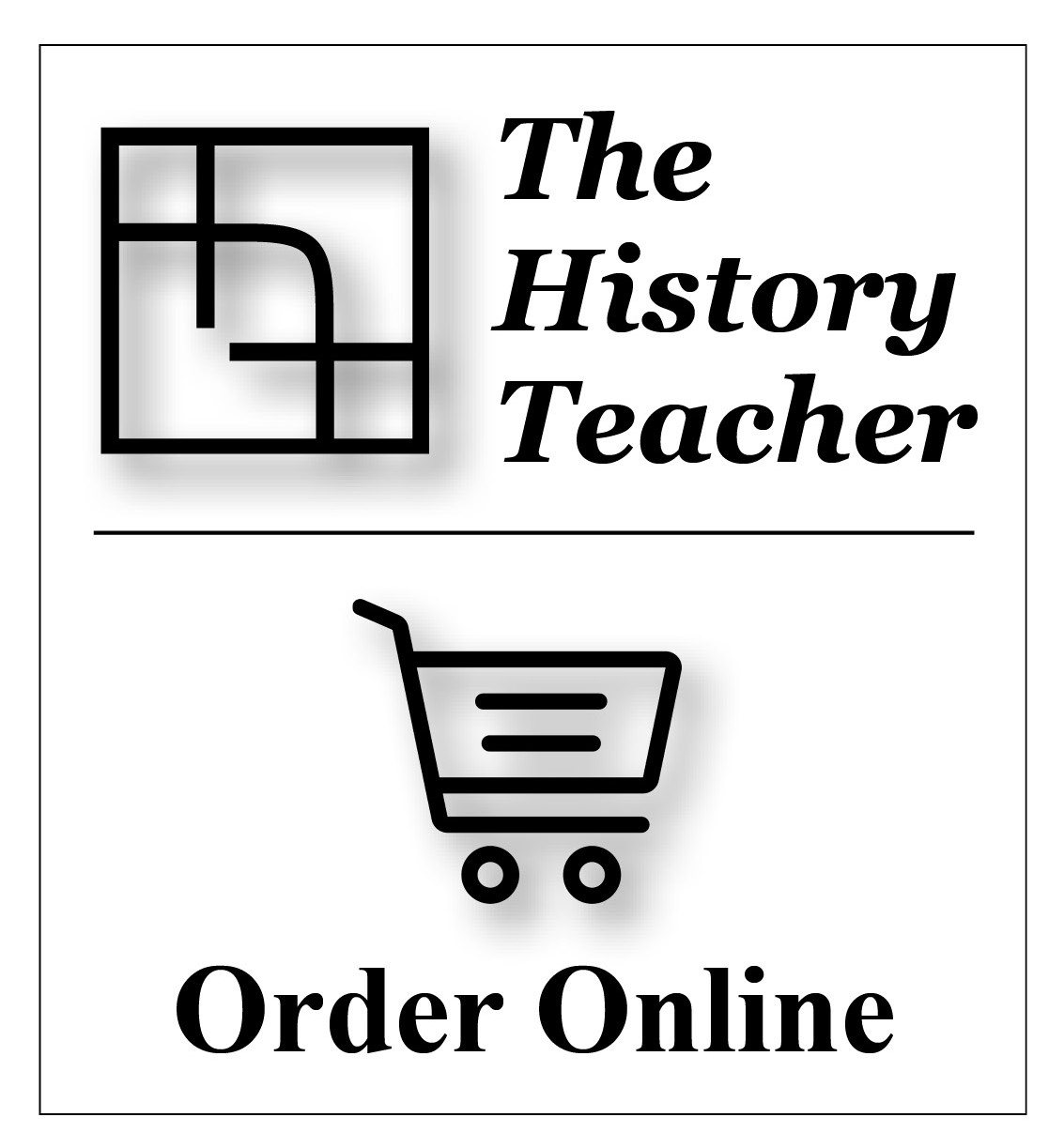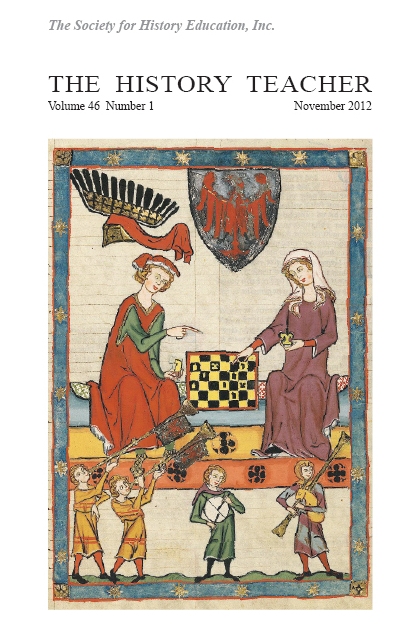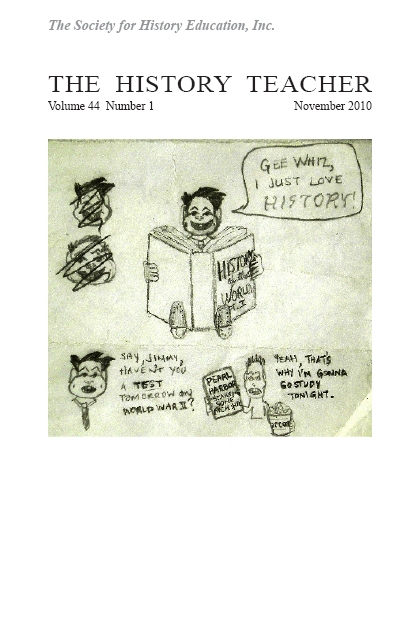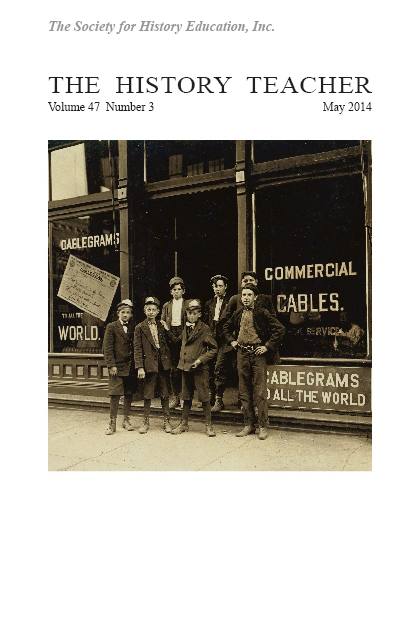The History Teacher
Volume 56, No. 1
November 2022
Front Matter | Back Matter
THE CRAFT OF TEACHING
Teachers Helping Teachers
Competing Interests: Teachers' Beliefs vs. Practices around
Citizenship in World History
by Erin A. Bronstein
(pp. 9-40)
Transforming Sixth-Grade Social Studies from "Just the Facts" to Historical Inquiry: A Case Study
of Teacher Learning
by Susan R. Goldman and Jacquelynn S. Popp
(pp. 41-75)
Historical Fiction and its Commonplace in Classrooms
by Annie McMahon Whitlock and Kristy A. Brugar
(pp. 77-102)
SPECIAL FEATURE
NATIONAL HISTORY DAY 2022 PRIZE ESSAYS
Introduction
by Jane Dabel, The History Teacher
(pp. 103-104)
A Little Ball Propels the Globe: How Ping-Pong Diplomacy Transformed Twentieth-Century Geopolitical Dynamics
by Hallie Xu, Senior Division
(pp. 105-121)
The Cod Wars: Iceland's Victory Through Diplomacy and the Global Consequences of Their Success
by Alexander Miller, Junior Division
(pp. 123-141)
REVIEWS
Full Reviews Section
(pp. 143-161)
Ball, Philip. The Water Kingdom: A Secret History of China
by Morris Rossabi
Bay, Mia. Traveling Black: A Story of Race and Resistance
by Sarah-Jane (Saje) Mathieu
Downs, Jim, Erica Armstrong Dunbar, T. K. Hunter, and Timothy Patrick McCarthy, eds. Reckoning with History: Unfinished Stories of American Freedom
by Richard J. Stocking
Kaldellis, Anthony. Romanland: Ethnicity and Empire in Byzantium
by Sviatoslav Dmitriev
McBride, Spencer W. Joseph Smith for President: The Prophet, the Assassins, and the Fight for American Religious Freedom
by Samuel P. Newton
McMahon, Cian T. The Coffin Ship: Life and Death at Sea during the Great Irish Famine
by Caleb Richardson
Mirvis, Stanley. The Jews of Eighteenth-Century Jamaica: A Testamentary History of a
Diaspora in Transition
by Holly Snyder
Rosas, Abigail. South Central Is Home: Race and the Power of Community Investment in Los Angeles
by David-James Gonzales
Testot, Laurent. Cataclysms: An Environmental History of Humanity
by Brian P. Caton
Wakeman, Rosemary. A Modern History of European Cities: 1815 to the Present
by Alexander Vari
Watson, Robert P. George Washington's Final Battle: The Epic Struggle to Build a Capital City
and a Nation
by Adam Costanzo
Zevin, Jack. Suspicious History: Questioning the Basis of Historical Evidence
by Jean-Paul R. Contreras deGuzman
IN EVERY ISSUE
7 Contributors to The History Teacher
162 The History of The History Teacher
165 Questionnaire for Potential Reviewers
166 Membership/Subscription Information
168 Submission Guidelines for The History Teacher
ADVERTISERS IN THIS ISSUE
76 Association for Asian Studies: Asia Shorts
122 Society for History Education: Endless Possibilities
142 Society for History Education: The Richard & Louise Wilde Award
CONTRIBUTORS
Erin A. Bronstein is an Assistant Professor of Practice at Oklahoma State University. She earned her Ph.D. at Michigan State University in 2021. She previously taught middle and high school social studies for seventeen years. Her research interests include world history, citizenship, and the impact of national identity. Her study in this issue was funded by the MSU College of Education Summer Research Fellowship.
Kristy A. Brugar (Ph.D., Michigan State University) is an Associate Professor of Social Studies Education at the University of Oklahoma, where she teaches undergraduate and graduate courses in elementary and secondary social studies education. She is also the Department Chair in Instructional Leadership and Academic Curriculum. Previously, she was an Assistant Professor at Wayne State University in Detroit and a middle school social studies teacher in Maryland and Michigan.
Susan R. Goldman (Ph.D., University of Pittsburgh) is a Distinguished Professor of Liberal Arts and Sciences, Psychology and Education, and founding co-director of the Learning Sciences Research Institute at the University of Illinois Chicago. She conducts research on subject matter learning, instruction and assessment, and on tools for supporting disciplinary inquiry and engagement. She has developed innovative programs in reading for understanding and disciplinary learning along with teacher professional learning experiences that enable adaptive implementation of these programs.
Alexander Miller is a student at Woodbridge High School in Irvine, California. His paper, "The Cod Wars: Iceland's Victory Through Diplomacy and the Global Consequences of Their Success," won first place in the 2022 National History Day contest Junior Paper division. His academic interests include mathematics and computer science.
Jacquelynn S. Popp (Ph.D., University of Illinois Chicago) is an Associate Professor of Education at Lake Forest College in Illinois. Her research interests include supporting and researching K-12 literacy teaching and learning with a focus on disciplinary literacies, as well as teacher collaborative reflection and professional learning communities.
Annie McMahon Whitlock is an Associate Professor of History/Social Studies at Grand Valley State University and a former middle school social studies teacher who teaches elementary and secondary social studies methods courses. She earned her doctorate from Michigan State University in 2013. Her research is centered on teaching elementary social studies through civic engagement, place-based inquiry, and curriculum integration. Whitlock is the Editor of the peer-reviewed Great Lakes Social Studies Journal, a Michigan Council for the Social Studies publication.
Hallie Xu is a high school student from Lakeside School in Seattle, Washington. Her paper, "A Little Ball Propels the Globe," won first place in the Senior Paper division for National History Day 2022, and an expanded version was published in The Concord Review. She is indebted to the many teachers who helped her transform historical thinking and analysis from hobby to habit. Lastly, she maintains immense gratitude to her mother, whose spoken and written brilliance inspire her every day.
|
